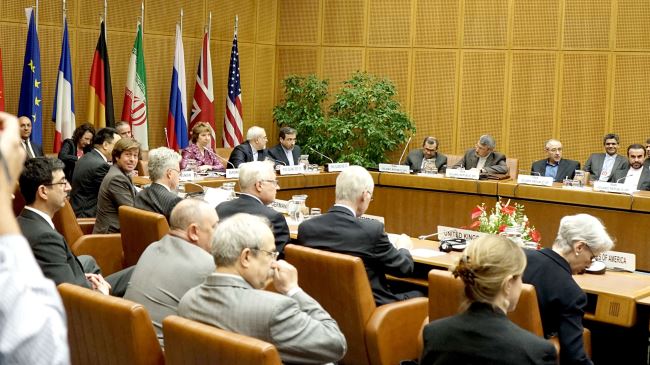 Regional Rivals Share Angst Over Slimmed Prospects for 'Air Tight' Deal
Regional Rivals Share Angst Over Slimmed Prospects for 'Air Tight' Deal
TEL AVIV AND DUBAI — In the run-up to a Nov. 24 deadline for nuclear talks with Iran, leaders from Israel and gulf states are separately urging Western powers to stand firm and demand a deal that derails the regional threat from Tehran.
Reflecting shared angst over dwindling prospects for such a deal, regional rivals have publicly warned of the dangers in rushing to conclude a partial deal.
“Failure to conclude a solid agreement that prevents nuclear proliferation could have serious consequences, not only in our region, but far beyond,” said Anwar Gargash, UAE minister of state for foreign affairs.
“We consider it crucial that any future agreement with Iran on the nuclear file be air tight,” he said.
In Israel, Prime Minister Benjamin Netanyahu has repeatedly expressed the same thought, only in different words. “No deal is better than a bad deal.”
Privately, Israeli officials are pushing for another six-month extension, rather than see the talks collapse. But much like the infinitely protracted talks between Israeli and Palestinian leaders, the extension route reflects lost hope of reaching an airtight deal.
“Officially, Israel would like to see an extension … but behind that is not necessarily any hope for a chance of getting a good deal,” said Emily Landau, a senior research fellow and head of the Arms Control and Regional Security Program at the Tel Aviv-based Institute for National Security Studies.
In an Oct. 29 interview, Landau said extension or collapse are only two options. As the deadline nears, there still is a chance for extracting a good deal, she said.
“Now is the time to apply massive pressure. I hope at some point the international community will wake up to the fact that Iran has absolutely no interest in getting a good deal.”
But US officials are taking a wait-and-see approach. Speaking on Oct. 30, Secretary of State John Kerry said that “whether Iran can make the tough decisions that it needs to make will be determined in the next weeks. But I have said consistently that no deal was better than a bad deal. And we’re going to be very careful, very much based on expert advice, facts, science as to the choices we make.”
Kerry added that the United States has “pledged that our goal is to shut off each pathway [to an Iranian nuclear weapon] sufficient that we know we have a break-out time of a minimum of a year that gives us the opportunity to respond if they were to try to do that. We believe there are ways to achieve that.”
Dennis Ross, a longtime US diplomat and senior State Department official who led Washington’s negotiations with Iran under former US President George H.W. Bush, has urged Western powers to resist the temptation to accede to Tehran merely to close a deal.
In an Oct. 16 analysis published in Foreign Affairs, Ross suggested Iran was using the negotiating framework as a springboard to roll back sanctions and extract additional concessions.
“It’s no accident that hardly anyone involved in the Iranian nuclear negotiations has expressed optimism about meeting the November 24 deadline,” Ross wrote.
He cited a list of key positions that Western powers have already ceded to Tehran in recent months. “P5+1 concessions allowed Iran to avoid suspending uranium enrichment, despite UN Security Council resolutions mandated it to do so.”
Other concessions included according Iran all privileges of signatory countries of the Nuclear Non Proliferation Agreement, despite previous violations. Western negotiators, he said, “accommodated Iranian insistence on not dismantling centrifuges.”
In an Oct. 18 interview with Iran’s Fars news agency, Ali Younesi, presidential adviser for religious affairs, reflected the position of Iranian hardliners who are “not too keen” to close a deal.
According to a translation by the Middle East Media Research Institute, Younesi said, “The Americans want this more than other countries. Some ostensibly friendly countries, like Russia and China, do not want it to yield results at all … [but] America does, because, if Obama fails to achieve this, he will have no achievements whatsoever.”
By Defense News
The Iran Project is not responsible for the content of quoted articles.

 QR code
QR code